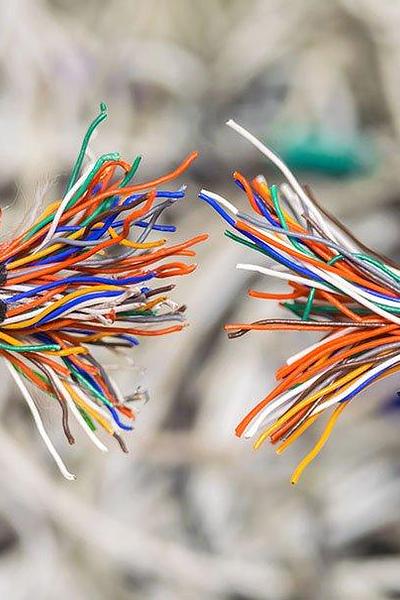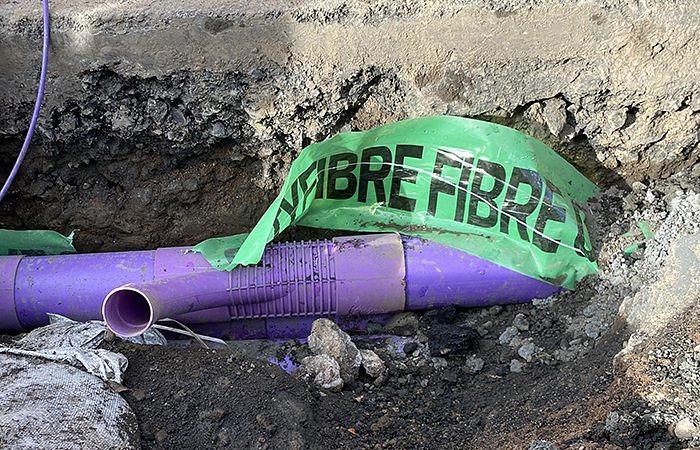
TELECOMS
The Copper Switch Off: How is it Going to Affect You?
Telecom providers in the UK are planning to permanently switch off copper-twisted pair networks. How is it going to affect you and what should you do to prepare?

Telecom providers in the UK are planning to permanently switch off copper-twisted pair networks. How is it going to affect you and what should you do to prepare?
Author: Alan Pritchard, Principal Consultant at FarrPoint
Telecommunications as we know it is changing, and it’s happening faster than you think, in fact across the world it already has. Around 2027 the copper twisted-pair cables that connect every home and office in the UK to their local telephone exchange and which have been around in some shape or form since 1911, will be superseded by Fibre Optic, or Full Fibre (FTTP) technology. And these changes are already in progress across the country.
Prior to Copper to Fibre switch, the Analogue switch-off (also referred to as the PSTN switch-off or the Digital Switchover) is planned to be completed by 2025, which will retire the analogue telephone network used for calls and systems that rely on the traditional landline.
Copper cables were originally designed for old-style telephones and have had numerous leases of life breathed into them by being used to deliver broadband services in the shape of ADSL and more recently FTTC, but their time has now come, as they are unable to cope with the huge demand for faster and faster access to the Internet which only Fibre can deliver.
Most UK premises are served by cables in the street from (this will open in a new window)Openreach, part of BT, who plan to retire their copper network as fibre is rolled out UK wide. In fact, they have already signalled that once an area is served by 75% fibre to the premises then no more copper-based services will be sold. Other providers are less reliant on copper twisted-pair cables in their networks and so for them, there is likely to be less disruption.
You can also download our guide that will help businesses navigate through the Copper Switch-Off, Analogue Switch-Off and 2G and 3G Network Sunsets.
This planned change is a massive undertaking given that there are approximately 25 million premises across the UK and each one will require some form of visit to change and install brand new fibre cables. This could mean digging up streets, erecting poles and installing new cable ducts where old ones have collapsed, or are perhaps inaccessible due to age.
Numerous businesses across the UK rely on the network connections that are supplied via copper cables, for example DSL and FTTC, these services will all need to be replaced with a fibre-based alternative. From local authorities, GP surgeries and care homes to pharmacies and hundreds of thousands of retail shops, all will have to switch to fibre or mobile by 2027 at the latest. It sounds far away, but changes are already happening. Openreach announced that it will stop selling copper products between now and January 2022. In some areas, copper cables are being replaced as we speak.
If you run a small retail shop, you might experience minimal disruption. Your till, your card machine or terminal would not work during the switch but are likely to be up and running smoothly afterwards.
It gets a little more complex if you are a larger organisation with different branches across multiple locations. Do you know which of your sites rely on copper-based services and what fibre-based alternative should be used? Will and how your operations be affected? Does the switch have to happen at all locations simultaneously or can it be rolled out over a few months? Are there any critical services that rely on it and how will you ensure minimal disruption to staff and service users?
If you don't know the answer to these questions, seek advice to help you review and assess your assets and prepare the most appropriate migration plan for minimal disruption.

The benefits of the move to fibre with the copper Switch-Off will be substantial – faster Gigabit speeds compared to superfast broadband with the ability to stream 4K and 8K video, lifelike video conferencing, and many others. Reliability will also be improved as countries like (this will open in a new window)Estonia, and Sweden, which have already adopted this switch, reported a 70% reduction in cable faults between Copper and Fibre – so no more buffering internet when it rains which can occur for those with old copper cables in their street.
Whilst this change to fibre will occur over the next few years some may ask why does it matter as I no longer use my landline - my mobile is my device of choice and isn’t 4G or 5G able to do all of this?
Whilst many people no longer use their landlines and rely on mobile, the majority of households still depend on broadband that is delivered via copper cables. If people started switching from copper to mobile, and not fibre, the reality is that the current mobile networks would not be big enough to accommodate a 100% switch to mobile. This also assumes that we could get reliable 5 signal bars in every room in the house, which isn't always the case. Most modern buildings with good insulation are very good at blocking mobile phone signals getting in from outside!
So what about 5G? Will that change everything? Probably not in the short term, as it will suffer from the same coverage challenges as 4G mobile, trying to get a reliable signal inside buildings. Coverage is also currently confined to major city centres only and will take many years to be widely available needing many more new mobile phone masts erected which could get challenged by communities.
Also, Mobile networks actually depend on fibre cables in the street to get their signals on to the Internet, as only the first few kilometres or so are actually radio. So conversely, more fibre is needed to get better mobile.
For some in the UK, especially those in rural areas, the switch to fibre will not be as quick or perhaps as quick as it should be. For some in the UK, especially those in rural areas, the switch to fibre will not be quick or perhaps as quick as it should be. Government interventions are likely to continue to be focused on these areas which the commercial telecoms suppliers alone will not reach.
Traditionally, remote areas have suffered from poor mobile coverage and slower broadband services due to the high cost of deploying infrastructure.
Inevitably, these costs mean that some remote locations may in fact never get fibre to their home, as 4G and 5G services may be more economical to deliver to remote areas than deploying fibre infrastructure to each premise.
For some very remote locations, alternatives such as newer satellite-based systems like Starlink (SpaceX) and OneWeb may be the most appropriate solution, albeit at a premium price.
Over the next few years, a telecoms revolution will be occurring for the cables in the street coming into homes and businesses. Organisations need to be aware of how these changes will affect their current networks to minimise disruption and to ensure that they take full advantage of the benefits these changes can offer.
If you are interested in finding out how Copper Switch-Off might affect your organisation, please get in touch.
You can also download our guide that will help businesses navigate through the connectivity and telephony changes ahead.
Connectivity is important. It drives business and society, bringing communities and commerce together. That's why we use our insight and experience to connect people and business.